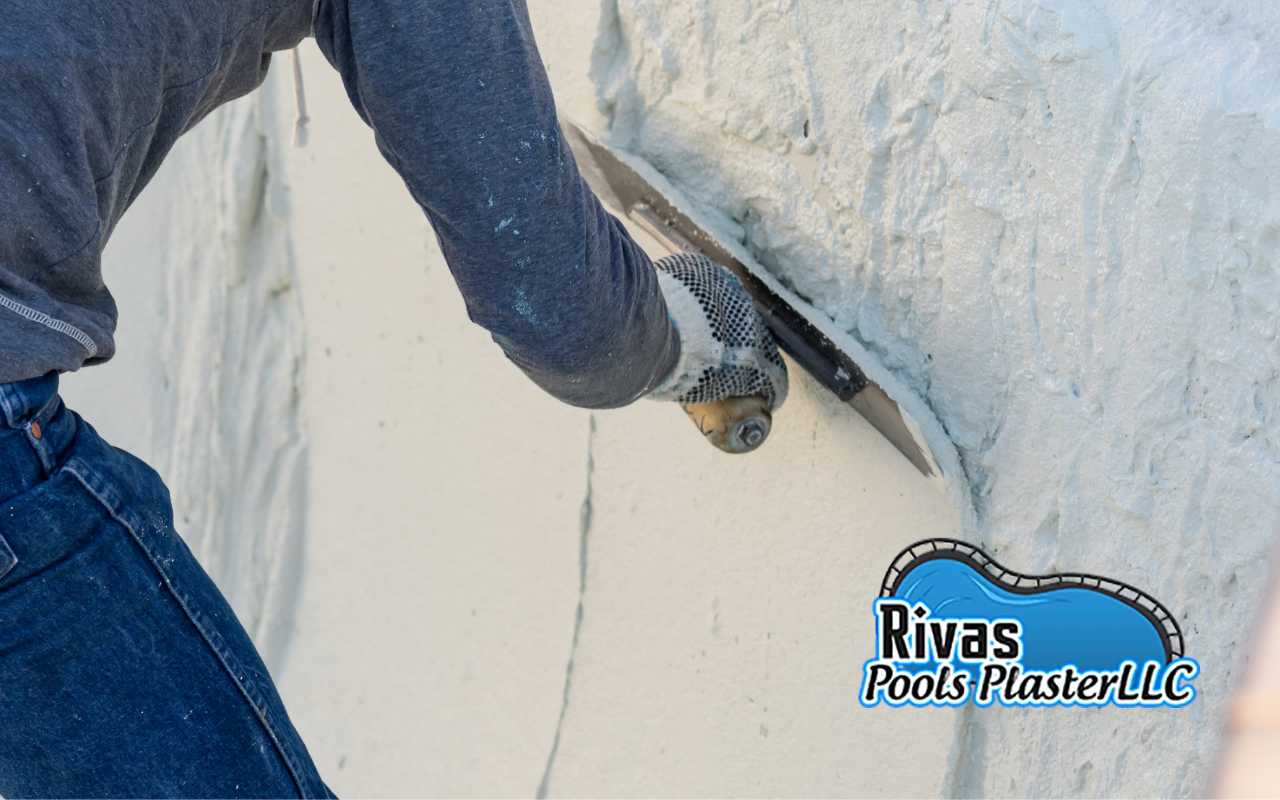Unraveling the Various Types of Pool Plasters
In pool design and maintenance, understanding the different types of pool plaster is crucial. This component affects not only the appearance of a pool but also its durability and feel underfoot.
As a pool owner or someone considering getting a pool, familiarizing yourself with the options available can ensure you make an informed decision tailored to your aesthetic preferences and functional needs. This article dives deep into the various pool plaster types, providing insights that might need to be added to your pool planning puzzle.
Delving Deeper: Understanding the Types of Pool Plaster

When it comes to pool construction and renovation, the type of plaster you choose plays a pivotal role. The right types of pool plaster can significantly influence the pool’s aesthetics, longevity, and maintenance requirements.
With an array of options in the market, it’s essential to understand the distinct characteristics of each type to make an educated choice that aligns with your vision and budget. Let’s embark on this journey to explore the different types of pool plaster and their unique attributes.
A Comprehensive Guide to the Types of Pool Plaster
White Marble-based Plaster
The classic choice for many pool owners, white marble-based plaster offers a smooth and elegant finish. Composed mainly of white marble sand and white cement, it gives a timeless blue tint to the pool water. However, it’s worth noting that while this plaster is cost-effective, it might require more frequent maintenance due to its susceptibility to staining and chemical imbalances.
Quartz Plaster
A step up from the traditional white plaster, quartz plaster introduces polymers and quartz aggregates to the mix. This combination enhances the pool’s durability and offers a sparkling finish. Available in various colors, quartz plaster can elevate the visual appeal of any pool.
Pebble Plaster
Pebble plaster is the go-to choice for those looking for a natural, lagoon-style finish. Infused with small pebbles and stones, this plaster type is durable and aesthetically pleasing. Its textured surface reduces the chances of slipping, making it a safe choice for families.
Glass Bead Plaster
An epitome of luxury, glass bead plaster provides a shimmering, reflective finish to the pool surface. It offers a unique brilliance under sunlight, composed of tiny glass beads and a polymer-modified cement base. While it’s on the pricier side, its resistance to chemicals and stains makes it a worthwhile investment.
Polished Marble Plaster
Polished marble plaster offers an exquisite mirror-like finish. By refining the traditional marble-based plaster and adding specific polishing techniques, this plaster type presents a glossy appearance. Its smooth surface is pleasing to the eyes and gentle on the feet.
Hybrid Plaster
Hybrid plasters combine the best of both worlds by blending quartz or pebble aggregates with polymers. The result is a robust and resilient pool surface that stands up to chemical wear and tear while retaining its aesthetic appeal.
Benefits of Choosing the Right Plaster
Selecting the appropriate plaster type can influence the pool’s lifespan, maintenance cost, and overall visual allure. From resisting algae growth to minimizing the impact of UV rays, the right plaster can delight pool ownership.
Factors to Consider
While aesthetics play a significant role, pool owners should consider factors like budget, maintenance, safety, and longevity when choosing a plaster type. Consulting with professionals can aid in making an informed decision.
Essential Insights and Tips about Types of Pool Plasters

Quick Tips for Pool Plaster Maintenance
Regular Cleaning: Regardless of the type of plaster, regular cleaning can prevent staining and algae buildup.
Balanced Chemistry: Maintaining balanced pool water chemistry can significantly enhance the lifespan of the plaster.
Avoid Draining: Frequent draining can harm certain plaster types, especially during hot days. It’s essential to consult with a professional before making such decisions.
Yearly Inspection: Conduct an annual inspection to detect early signs of wear or damage, ensuring timely repairs.
Fascinating Facts about Pool Plasters
- The popularity of quartz and pebble plaster has surged over the past decade due to their durability and varied aesthetic appeal.
- Polished marble plaster, while elegant, requires regular maintenance to retain its shine.
- The right type of plaster can increase a pool’s life by several years, offering cost savings in the long run.
Common Questions Regarding Pool Plaster
What is the average lifespan of pool plaster?
Traditional white plaster might last 5 -7 years, while aggregates like quartz and pebble can last 10 – 15 years with proper care.
How often should I replaster my pool?
While it depends on the type and its condition, generally, a pool requires re-plastering every ten years.
Can I change the plaster type during renovation?
Yes, many pool owners opt for a different plaster type during renovation to upgrade or change the pool’s appearance.
Elevate Your Pool Experience with Rivas Pool Plaster LLC
In the intricate world of pool designs and renovations, the plaster type can make or break the experience. While understanding the various types of pool plaster is essential, choosing the right professional service ensures optimal results.
At Rivas Pool Plaster LLC, we pride ourselves on our expertise, commitment to quality, and a keen understanding of our client’s needs. Dive into a seamless pool plastering experience with Rivas Pool Plaster LLC. Contact us today, and let’s make a splash together!

